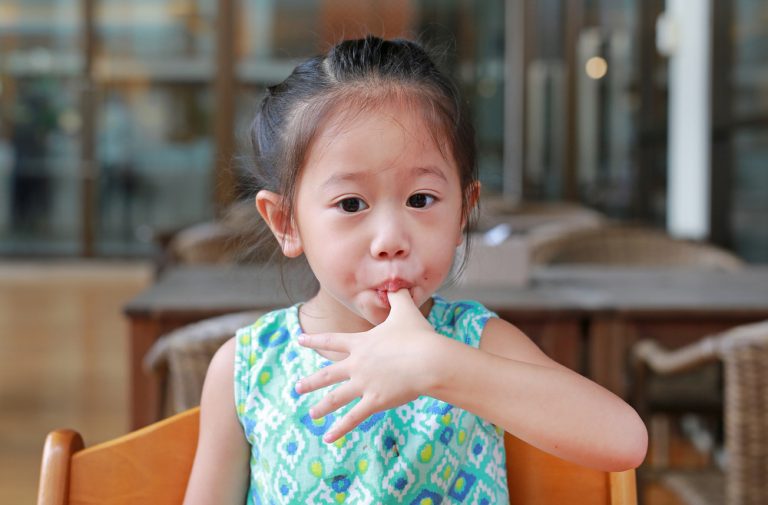Categories

Autism is no longer a secret
Written by: The Educational Psychologist Team of the Heep Hong Society For parents, explaining their child’s autism to others can feel like reopening a wound. They fear not only the lack of support from friends and family, but also the potential for misunderstanding or discrimination. So, how should parents approach this with their relatives and friends? Understanding the causes of autism is crucial. When explaining to friends and family, parents must first clarify that the cause of autism is not related to parental neglect or overindulgence. Autism is associated with abnormal brain development, which affects the child’s communication skills, thinking and behavior patterns, as well as their ability to understand the thoughts and actions of others. Parents can list the common characteristics of most children with autism, including social difficulties, stubbornness, anxiety, communication difficulties, focus ability, varying levels of activity,

Can children be naughty?
Written by: Fung Ji Hei, Game Therapist When Ji Fung, a first-grader, didn’t return from the restroom after a while, the teacher sent the male class leader to check on him. After a while, the class leader came back panting, saying, “The entire restroom is soaked!” So, the teacher went to investigate personally. Upon arriving at the restroom, the teacher saw a flood, with water and bubbles everywhere, and Ji Fung was “washing his hands” in one of the sinks. The teacher asked, “What are you doing?” He replied, “Washing my hands and seeing why there are bubbles.” To prevent any danger, the teacher stopped Ji Fung’s actions. Ji Fung is a very curious child, but his curiosity often causes inconvenience for others and himself. He likes to question everything and even more, he likes to try everything. Once, in

How to discover hidden talents and potential?
Written by: geneDecode Genetics Education Professional Team Innate potential is an ability that everyone is born with, a genetic characteristic that is present before growth. From birth, each child possesses their own unique talents. In the process of a child’s growth, emotional intelligence, IQ, and the ability to withstand setbacks, among others, are all necessary conditions for success. Among these conditions, each child’s talents are different. Can we discover their innate talents in the innocent eyes of children? Can we be sure to capture these talents and guide the children on a path of growth that suits them? Here is a mother’s experience: ‘Amy is 4 years old this year. As she grows up, she is becoming more and more curious about the things around her. Amy’s father noticed that she seemed to show a special interest in doodling

How to reduce the side effects of rewards?
Written by: Pang Chi Wah, Registered Educational Psychologist at the New Horizons Development Centre Some parents have the following thoughts about rewards: “The original intention was to praise the child’s good performance, but now the reward seems to have become a bribe.” “He has become utilitarian, calculating the degree of his effort based on the size of the reward.” “Sometimes I even feel that the child has become greedy. The rewards that once attracted him no longer have the original effect. Only by providing richer rewards is he willing to make an effort.” In fact, in the commercial society where adults are located, bosses also use rewards and bonuses to praise employees’ outstanding work performance and inspire employee morale. Many early childhood education experts have also proposed a reward system, using children’s favorite food, toys, etc., to train and cultivate

What should I do if my child has a habit of sucking their fingers?
Written by: Early Childhood Education Specialist, Teacher Chan-Chen Shu-an According to Dr. David Levy’s research, children who finish a bottle of milk within 10 minutes (possibly because the bottle’s nipple hole is larger) are more likely to exhibit finger-sucking behavior than those who finish the entire bottle in 20 minutes. Dr. Levy also conducted an experiment feeding puppies with a dropper, preventing them from sucking while feeding. The result was that they resorted to sucking their own or other puppies’ skin, some so vigorously that the skin peeled off. From this, we can understand that the behavior of infants sucking their fingers in the first few months is due to the lack of satisfaction from sucking, it is a need, not innate, and not a bad behavior. Breastfeeding Fosters Parent-Child Bond When a mother can breastfeed her baby, the baby is


How Should Parents Express Their Love For Their Children?
Source: Parenting Specialist, Ken Sir Some mothers often ask me, “How should I show my love for my children?” Will it be spoiled by expressing too much? I think that Chinese people are more introverted and are often afraid to express their love. Especially when you want to express your concern for him but end up with a different attitude. I once saw a mother and her little child lost in Shatin and then reunited. How did the mother behave after the reunion? She grabbed him by the hand and hit him while saying, “I just couldn’t see you; do you know how scared I was?” I am very worried about you. What can I do if I can’t see you? In fact, everyone knows that his mother loves him, but the child cannot feel it. I often share an

Children often shirk their responsibilities, and parents should be held accountable?
Source: Psychotherapist, Lee Wai Tong Whenever something happens, children will use different excuses to shirk their responsibility toward others. Parents may then scold the child for this, but this may make the child avoid taking responsibility. Faced with this situation, what can parents do? First of all, when parents ask children, “Why didn’t you finish the work?” or “Why don’t you understand?” Parents want their children to take responsibility. But at this time, the child will want to shirk the responsibility and give it to someone else, but at the end of the day, the parents actually want the child to take responsibility. You should know that responsibility starts with the child having the time to make decisions because having the time is called having a sense of autonomy. If children can have a sense of autonomy, they will be

How can parents help young children adapt to primary school life both psychologically and physically?
Source: Professor Chiu Wing Kai, Chair Professor of Sociology at the Education University of Hong Kong. It’s already been 5 months into 2023 and summer vacation will be coming soon, followed by the start of the new school year in September. For K3 students to start their primary school life. However, these students have spent most of their 3-year kindergarten education in online classes due to the pandemic, with little face-to-face interaction. How can parents help them adapt to their new academic and social life in terms of their psychological and physical well-being. Students who are promoted to Primary 1 are at most at K2 level because they have not returned to school for at least one full year. There are many things they need to adapt to when transitioning from kindergarten to primary school. These include school schedules, daily

How to cultivate a positive learning attitude in young children from an early age?
Source: Dr. LAU Yee-hung, Associate Professor and Deputy Head, Department of Early Childhood Education, The Hong Kong Institute of Education Many parents hope that their children will develop a love for learning from a young age. However, children don’t automatically develop a liking for learning; it requires parents to gradually nurture them, bit by bit. Encouraging Children in Interactions Children won’t initially learn to persevere on their own. It’s the parents’ responsibility to encourage them to persist in the process, instilling in them an anticipation of success. When a child succeeds, parents can review the past with them, allowing the child to feel the valuable outcomes achieved through perseverance and encouraging them to continue exhibiting positive behavior. Providing Intrinsic Motivation Often, children need some motivation to excel in certain tasks. Parents should emphasize what the child gains without making comparisons,
